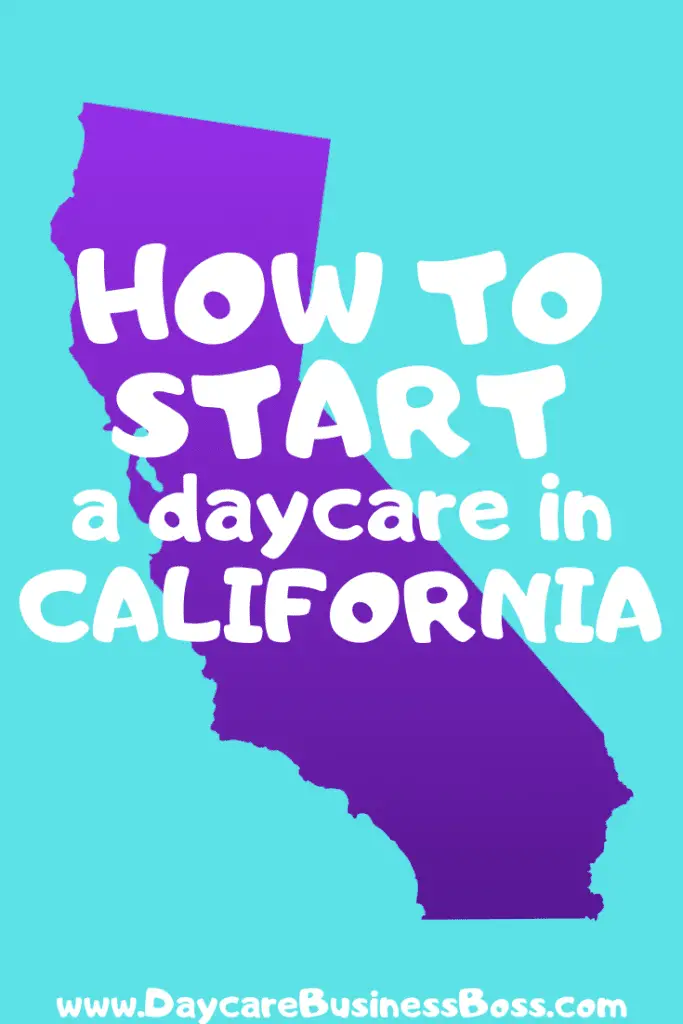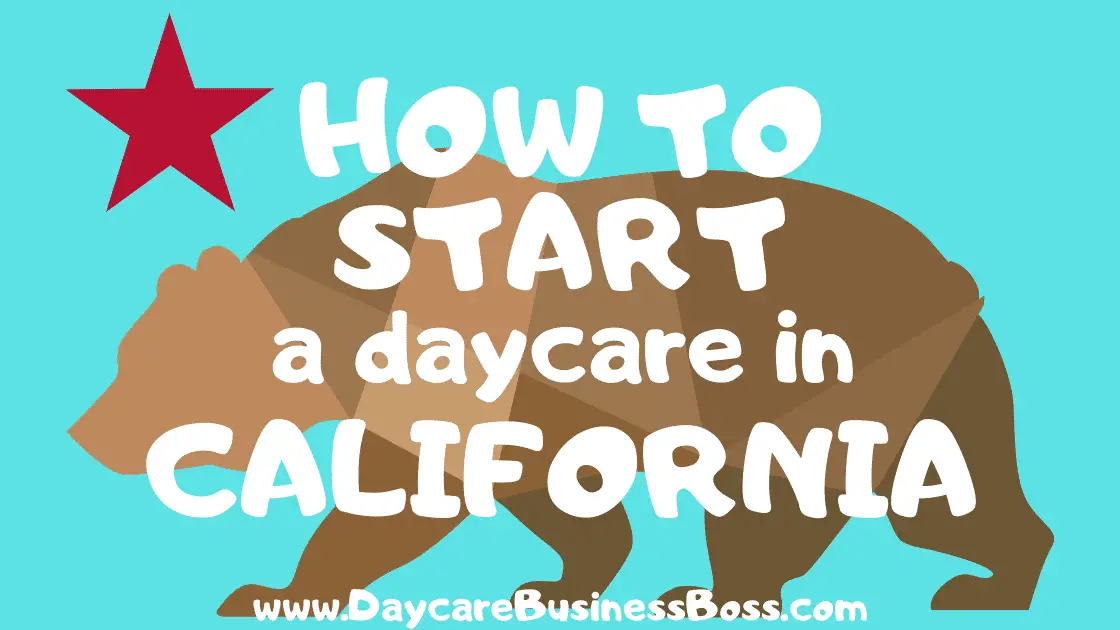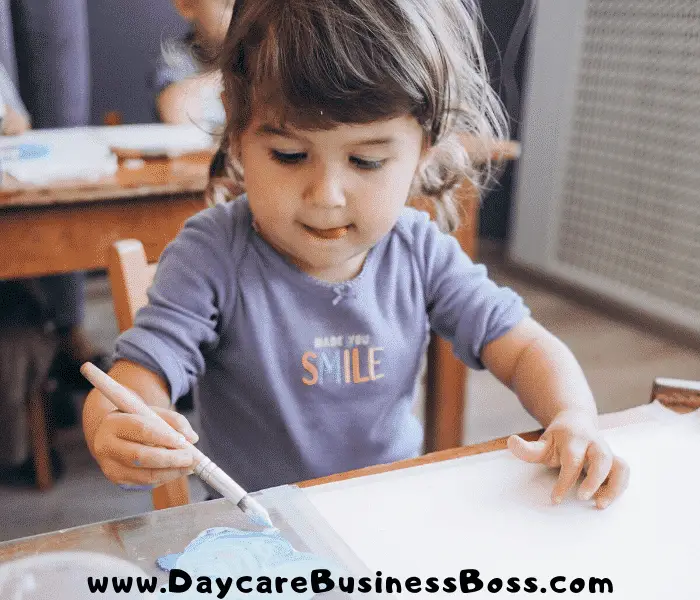In order to start a daycare in California, there are many considerations that must be taken into account. There are legal guidelines and regulations that must be adhered to, as well as some other factors that play a role in getting it started. However, it can be a quite rewarding experience, as daycares play an integral role in childhood development.
To start a daycare in California, one must choose a legal business form, obtain licenses and permits, adhere to health and safety regulations, obtain the necessary business insurance, and remain informed on applicable employment laws.
Types of Daycare Facilities
It is also important to note the different types of daycare facilities that can be operated in California. The state’s Child Care Licensing Program explains the requirements for each type of care facility.
Regarding Family Child Care Homes, care must be provided in the licensee’s residence, must be less than 24 hours, and can be provided for up to 14 children. Child Care Centers, on the other hand, can provide care for more than 14 children and teachers and directors are required to have educational experience. The care provided must be less than 24 hours and may require city and/or county permits. Additionally, a fire clearance, as well as a business license, is necessary.
Choosing a Business Entity
A daycare business can be operated as a number of different business entities. According to a legal guide, the business can be run as a partnership or sole proprietorship. However, operating as a limited liability company or corporation could help protect the daycare owner from personal liability. For instance, if an incident occurs involving injury, the business would be liable, rather than the business owner.
Selecting the right location is also important, as the owner must be sure that the location complies with local zoning laws. Further, different types of insurance policies must be obtained. Such policies include liability, workers’ compensation, and business insurance. From a business perspective, it can be helpful to launch a marketing campaign and maintain an active online presence.
Becoming Licensed
Licenses are required in order to start a daycare to help ensure facilities meet established health and safety standards. They are obtained through the Child Care Licensing Division (CCLD) of the Department of Social Services (DSS). This is accomplished partly by the Child Care Licensing program, which monitors facilities, provides technical assistance, and establishes partnerships with providers, parents, and the child care community.
The California Department of Social Services outlines how Child Care Centers (CCCs) and Family Child Care Homes (FCCHs) can be licensed. Child Care Centers are usually located in a commercial building and Family Child Care Homes are in a licensee’s home. There are also some regulations pertaining to the type of care that can be provided and also the time periods. In child care facilities, only non-medical care and supervision can be provided, and care is limited to periods of less than 24 hours.
In California, the laws dealing with such businesses are explained in the California Health and Safety Code and Title 22 of the California Code of Regulations. The Child Care Licensing Program ensures that child care facilities operate in accordance with state code in a number of ways, including:
- In-person and online orientations
- Pre-licensing inspections
- Unannounced facility inspections
- Complaint investigations
- Consultations
- Education and technical support, and
- Follow-up inspections
Those who want to start a daycare must attend a Department of Social Services orientation, either online or in-person at regional offices. There is a non-refundable and non-transferable fee of $27.43 (a $25 orientation fee, plus a processing fee of $2.43). Licensed child care facilities are also required to pay an annual licensing fee, as well as other fees such as for changes in location, capacity, and corporate status; and late fees, probation fees, and dishonored check fees.
In addition to regulations requiring business licensing, there are also strict laws on who can operate at-home child care businesses. The person applying for the license must be at least 18-years-old, pass a criminal background check, and be cleared of any history of child or sexual abuse. All adults living in the home in which the daycare is operated would also have to submit fingerprints and pass criminal background checks.

Health and Safety
The National Resource Center for Health and Safety in Child Care and Early Education highlights sets of standards and practices that help to ensure the safety and well-being of children in care facilities. Daycares should have a written comprehensive and coordinated planned program of daily activities appropriate for groups of children at each stage of early childhood. This plan should be based on a statement of principles for the facility and each child’s individual development.
Plans should also include daily opportunities to learn healthy habits that prevent infection and injuries, as well as healthy habits that support healthful eating, nutrition education, physical activity, and sleep. For example, healthy weight is promoted by focusing on high-impact standards of best practices related to infant feeding, avoiding or limiting foods high in sugar, serving water and 100% juice and limiting screen time.
Regarding safety, the building should be inspected by a public inspector to assure compliance with applicable building and fire codes before the building can be made accessible to children. There are a number of additional factors that must be considered to guarantee safety and comply with state regulations. Providing access to fresh air indoors, maintaining the safe water supply, testing for lead, and preventing exposure to asbestos help safeguard the well-being of both children and employees.
Programs such as Quality Counts California can also play a role in establishing a daycare, as it ensures high-quality child care programs so that children thrive in their early learning settings and succeed in kindergarten and beyond. This also involves annual reports to ensure monitoring and accountability.
Employment
New facilities need staff to assist in the smooth operation of the daycare. The state of California’s Community Care Licensing Division details standards and qualification guidelines that care facilities should use in the employment process. These guidelines assist in maintaining high-quality child care at daycare facilities across the state.
Daycare directors must have completed 12 semester units relating to early childhood education and development, three semester units in administration or staff relations, and four years of teaching experience in a supervised group child care center. Infant directors must have completed the same requirements, but related to infant care. Teachers must have completed 12 semester units relating to early childhood education and development, and six months of experience in a licensed child care center or comparable group child care program.
Maintaining high standards for employment aids both in the operation of the daycare as well as the development, health, and safety of the children.
Related Questions
What agency do I contact regarding licensing?
The Child Care Licensing Program licenses both Child Care Centers (CCCs) and Family Child Care Homes (FCCHs) in California. There are also a number of regional offices where information can be obtained specific to the type of daycare you want to open. These regional offices are also where the required orientations are conducted.
Child Care Licensing Program
744 P Street, MS T9-15-48
Sacramento, CA 95814
What regulations must my daycare comply with?
In addition to licensing regulations, daycare facilities must also comply with various health, safety, and employment standards. In order to ensure the safety of the children, there are also state inspections that must be completed and building codes that need to be adhered to.
What are some additional resources I can use?
There are various government and private organization websites that explain what is necessary both to open and maintain daycares in California. The California Department of Social Services is a great resource that provides information on licensing and regulations. Additionally, the Quality Counts California program deals with the quality of care and educational programs pertaining to daycare facilities. The National Resource Center for Health and Safety in Child Care and Early Education outlines programs and curriculums to ensure high health and safety standards.
There are also a number of applications that can assist in the creation of a daycare, and also allow owners to streamline administrative work. Brightwheel, for example, is a software that can help track daily events and activities, keep parents updated, and can be used for digital check-in.
Lastly, it is important to note that despite the seemingly complicated and strict licensing and regulations, opening a daycare can be very rewarding. They have the potential to positively impact the early development of children and aid in their education, as well as social, physical, and mental skills.
Please note: This article is for educational purposes only and does not constitute legal advice. Please consult a legal expert to address your specific needs.
Our startup documents make it easy for you to start your own daycare business! Check them out here.


Meet Shawn Chun: Entrepreneur and Childcare Business Fan.
I’m a happy individual who happens to be an entrepreneur. I have owned several types of businesses in my life from a coffee shop to an import and export business to an online review business plus a few more and now I create online daycare business resources for those interested in starting new ventures. It’s demanding work but I love it. I do it for those passionate about their business and their goals. That’s why when I meet a childcare business owner, I see myself. I know how hard the struggle is to retain clients, find good employees and keep the business growing all while trying to stay competitive.
That’s why I created Daycare Business Boss: I want to help childcare business owners like you build a thriving business that brings you endless joy and supports your ideal lifestyle.



